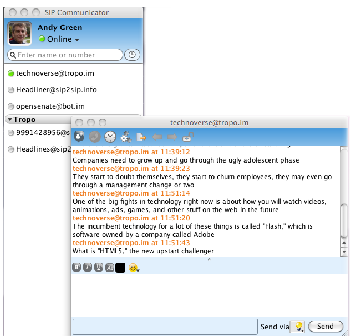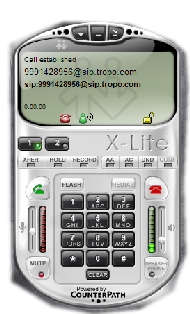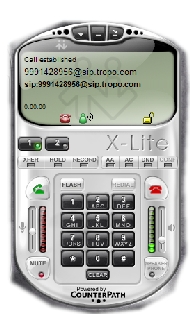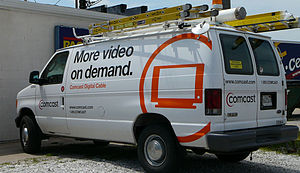In my evolving unified communications projects, I’ve been searching for a way to switch media between voice and text. My current two Tropo apps (the headline reader and the Gov 2.0 bill browser) are voice-centric, but at times I would like to eliminate the text-to-speech part and just send the text.
This should be possible with SIP, which underlies the unified communications platforms I’ve been accessing with my X-Lite softphone.
So called “multi-modal” communications, in which device capabilities (plain cell phone, smartphone with keyboard, smartphone with video,etc.) and presence ( in meeting, on the road, in the quiet car) are acknowledged in routing and rendering decisions, is one of the important advances of this session technology.Continue reading








